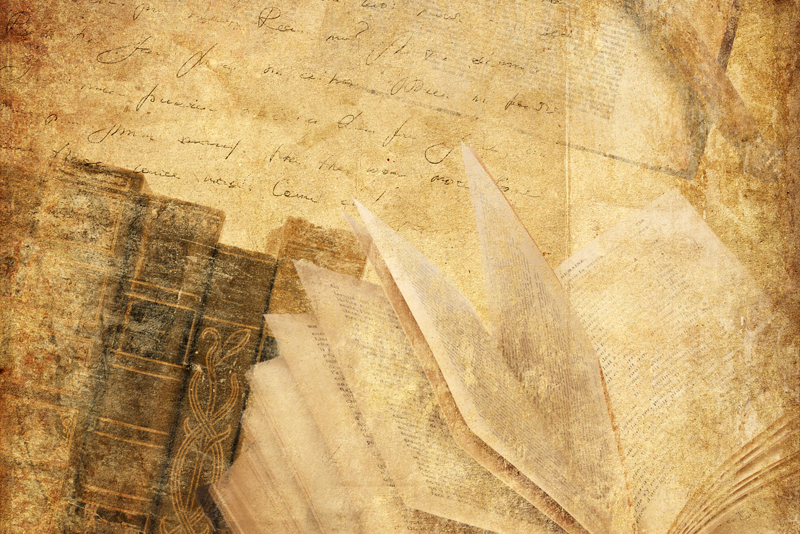Benefits of Reading Literature

For a lot of people, reading is always a welcoming distraction from the real world; a world of possibilities, where we are allowed to make our own conclusions without being judged. Literature is an art, and so to appreciate it, we have to learn how to read it, on a regular basis too. This is not kindergarten, I am aware. We don’t need reminders about how reading is essential, or lectures on how to read. So we’ll instead have this described as a friendly article on what reading, specifically literary fiction, can do for you.
Knowledge expansion - There are three main areas where our knowledge can be expanded when we read literary (or other genuine genre) works. They are as follows:
a. On cultural awareness. Literary fiction allows you to be in a place where you might never be, and visualize what you might not visualize on your own; it gives an insight and knowledge about other cultures outside ours, plants that seed of interest, expands on the little cultural knowledge we may have had about other places, and even helps us to see the cultures from a new perspective different from what is revealed to the public eye, either by media or various miscommunications.
b. On life experiences. When we read literary fiction, or any good genre lit, we get to be in the shoes of the characters in the story, to feel their pain, relive their experiences, joys, pains, mistakes, etc. It brings a sense of understanding about the different situations that some real life people face and how different people handle it differently. We get to understand the prevalent social, economic, and political issues that the author is trying to show his /her reader and the significance of some actions that some of the important characters make. We also learn a few things about ourselves as humans, our limitations and shortcomings, but also our strengths and potency.
c. On world history. Some literary fiction plots are centered on historical periods and events that allow the reader to gain understanding of the periodical days and how the way things used to be at the time. It expands on the historical knowledge that may have already been attained in educational institutions, and adds a fresh outlook on how it felt to live through world-known events such as WW1 and WW2, the Great Depression, The Renaissance period, and so on.
Brain exercise -
a. Thinking outside the box. Reading literature is not only for entertainment purposes, but it is literally a form of exercise for the brain. When we read about the different characters in a plot and the situations they may be facing, we get to think for them and feel for them, in the way that we may never have thought for ourselves and on our own.
b. Vocabulary improvement. Reading improves our vocabulary tremendously; after reading familiar words and phrases repeatedly, we automatically figure out their meanings without going for the dictionary, and we begin to insert the phrases in our everyday conversations, which also leads to increase in our general intelligent level.
c. Increase in emotional intelligence = better interaction with those around us. When we are made aware of the issues going on around the world, we gain a better understanding of why things are the way they are, and why people appear to be the way they are or act the way they do. This gives room for allowance and tolerance in our subconscious, and allows us to gain the patience to be more understanding, and thus interact better with those around us.
Entertainment -
Reading is a great form of entertainment; just like we go to the theaters, karaoke, bowling, skating, or dancing, so is reading in the same category. Reading, especially for book lovers, gives a sense of excitement and anticipation, like watching a movie with your mind's eye – being able to visualize every place, character, access situations, and so on. A jolly good book brings happiness and lightness to the reader, strongly improving the mood of the reader prior to reading.
I am aware that for some, reading books doesn't always come naturally, especially reading literary fiction, as some have deemed it to be quite dull and wordy. However, I can assure you that it is not so with all literary books. Granted, it is a fact that some works are slow in starting off with the plot and getting to the 'exciting' part. However, there are also some books in which the details of the very first pages might seem unimportant and mundane, but once you get through those first pages with patience (and maybe a little discipline), you will NOT regret picking them up, that's an assurance on my part.
So give yourself a chance, pick up a novel to read. If you're an unhurried reader, give yourself a month at most to finish one. Below are my top 10, all-time favorite random fiction books(in no particular order) that I have found the most exciting. I hope that you will find the slightest bit of enjoyment when reading them too!
1. Wuthering Heights, by Emily Bronte
2. Alias Grace, by Margaret Atwood
3. Tell Me Your Dreams, by Sidney Sheldon
4. Farewell to Arms, by Ernest Hemingway
5. The Gift, by Danielle Steel
6. Purple Hibiscus, by Chimamanda Ngozi Adichie
7. The Host, by Stephanie Meyer
8. Delirium, by Lauren Oliver
9. An Ordinary Woman, by Donna Hill
10. Immanuel's Veins, by Ted Dekker
the more you read, the more you know
Knowledge expansion - There are three main areas where our knowledge can be expanded when we read literary (or other genuine genre) works. They are as follows:
a. On cultural awareness. Literary fiction allows you to be in a place where you might never be, and visualize what you might not visualize on your own; it gives an insight and knowledge about other cultures outside ours, plants that seed of interest, expands on the little cultural knowledge we may have had about other places, and even helps us to see the cultures from a new perspective different from what is revealed to the public eye, either by media or various miscommunications.
b. On life experiences. When we read literary fiction, or any good genre lit, we get to be in the shoes of the characters in the story, to feel their pain, relive their experiences, joys, pains, mistakes, etc. It brings a sense of understanding about the different situations that some real life people face and how different people handle it differently. We get to understand the prevalent social, economic, and political issues that the author is trying to show his /her reader and the significance of some actions that some of the important characters make. We also learn a few things about ourselves as humans, our limitations and shortcomings, but also our strengths and potency.
c. On world history. Some literary fiction plots are centered on historical periods and events that allow the reader to gain understanding of the periodical days and how the way things used to be at the time. It expands on the historical knowledge that may have already been attained in educational institutions, and adds a fresh outlook on how it felt to live through world-known events such as WW1 and WW2, the Great Depression, The Renaissance period, and so on.
Brain exercise -
a. Thinking outside the box. Reading literature is not only for entertainment purposes, but it is literally a form of exercise for the brain. When we read about the different characters in a plot and the situations they may be facing, we get to think for them and feel for them, in the way that we may never have thought for ourselves and on our own.
b. Vocabulary improvement. Reading improves our vocabulary tremendously; after reading familiar words and phrases repeatedly, we automatically figure out their meanings without going for the dictionary, and we begin to insert the phrases in our everyday conversations, which also leads to increase in our general intelligent level.
c. Increase in emotional intelligence = better interaction with those around us. When we are made aware of the issues going on around the world, we gain a better understanding of why things are the way they are, and why people appear to be the way they are or act the way they do. This gives room for allowance and tolerance in our subconscious, and allows us to gain the patience to be more understanding, and thus interact better with those around us.
Entertainment -
Reading is a great form of entertainment; just like we go to the theaters, karaoke, bowling, skating, or dancing, so is reading in the same category. Reading, especially for book lovers, gives a sense of excitement and anticipation, like watching a movie with your mind's eye – being able to visualize every place, character, access situations, and so on. A jolly good book brings happiness and lightness to the reader, strongly improving the mood of the reader prior to reading.
I am aware that for some, reading books doesn't always come naturally, especially reading literary fiction, as some have deemed it to be quite dull and wordy. However, I can assure you that it is not so with all literary books. Granted, it is a fact that some works are slow in starting off with the plot and getting to the 'exciting' part. However, there are also some books in which the details of the very first pages might seem unimportant and mundane, but once you get through those first pages with patience (and maybe a little discipline), you will NOT regret picking them up, that's an assurance on my part.
So give yourself a chance, pick up a novel to read. If you're an unhurried reader, give yourself a month at most to finish one. Below are my top 10, all-time favorite random fiction books(in no particular order) that I have found the most exciting. I hope that you will find the slightest bit of enjoyment when reading them too!
1. Wuthering Heights, by Emily Bronte
2. Alias Grace, by Margaret Atwood
3. Tell Me Your Dreams, by Sidney Sheldon
4. Farewell to Arms, by Ernest Hemingway
5. The Gift, by Danielle Steel
6. Purple Hibiscus, by Chimamanda Ngozi Adichie
7. The Host, by Stephanie Meyer
8. Delirium, by Lauren Oliver
9. An Ordinary Woman, by Donna Hill
10. Immanuel's Veins, by Ted Dekker
the more you read, the more you know
the more you know, the smarter you grow
the smarter you grow, the stronger your voice
when speaking your mind or making your choice.
-- Unknown

Related Articles
Editor's Picks Articles
Top Ten Articles
Previous Features
Site Map
Content copyright © 2023 by Yvonne Ije. All rights reserved.
This content was written by Yvonne Ije. If you wish to use this content in any manner, you need written permission. Contact Yvonne Ije for details.







